In this podcast, Geneva Robins and Rita Reddy talk about change! Ugh, sometimes it’s the actual worst. There can be some real gross parts of change, but some delicious bits too. Rita shares a lesson from her work in Trilotherapy, the Apple Tree Cycle.
The metaphor of the apple tree cycle is a simple yet profound way of understanding change as an organic and natural part of learning and growth. You get a gentle way of looking at each stage of the cycle of life without fear or resistance. It’s a really supportive and transformational Trilotherapy tool.
What is Trilotherapy?
Created by Zen Master Nissim Amon, Trilotherapy is based on his own training in Zen Buddhism and meditation plus elements of his learnings in Western psychology and Eastern philosophies. It’s a retreat-based program with a series of workshops that can be taught individually or in a group setting.
The main philosophy of Trilotherapy is that you have a Center self that you’re born with and come into every life with, and two inner children, your rational mind and emotional mind. And our job in Trilotherapy is to help you figure out what place you’re making decisions from; to help you make decisions from the Center, which is always your true self.
Your two inner children, we call them your rational mind and your emotional mind; they create your personality. They take in all the information and process it, and then you’re the one who’s going to be making the decisions. Sometimes we’re allowing these children to make the decisions for us. But the idea is to parent ourselves and these inner children to help us make the best life decisions. Trilotherapy helps us figure out where we’re coming from and why we decide certain things.
How do you deal with change?
At times we all have to deal with enormous amounts of change and the feelings that come along with it, like grief and loss. Big changes can really challenge our ability to let go.
Nobody likes change… unless it’s the good parts of change! When the bad parts come around, which are always going to come around, that’s when things get really hard. We sometimes misname change to be only the gross parts we don’t like, but there is beauty in the whole cycle.
Embrace Change with the Apple Tree Cycle
The Apple Tree Cycle is a Trilotherapy tool to explore the natural cycles of change in our lives, so it’s not so scary. The stages of change are represented by the metaphor of the life cycle of the apple tree:
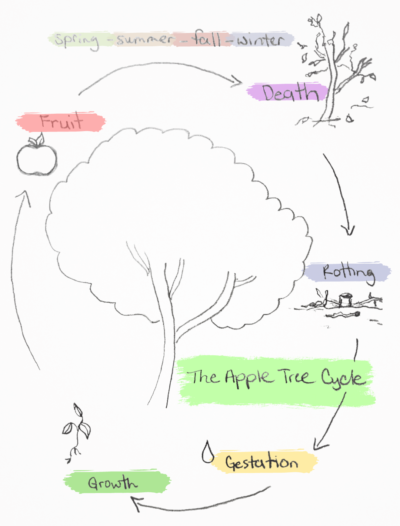
- seed and gestation, which is the new idea or start of something new;
- plant and growth stage; where your new creation is expanding;
- fruiting and enjoying the creation;
- death, where the creation is complete, the fruit falls, and the tree dies; it involves letting go;
- rotting, which is the disintegration and complete release of the creation back to fertilizer; and
- back to gestation, the cycle always returns to the start.
Everything goes through the apple tree cycle, even tiny little mini ones. You might go through 10 of them a day. It’s basically the beginning, the middle, and the end of anything that’s going on, whether it be a relationship or going to the store and getting groceries.
We tend to like the beginning parts of the cycle when the little sprout is happening. There’s forward progress like things could change; that’ll be amazing. Then the growth part, you see things take form, and everything is expanding. And then, in the fruiting stage, you’re starting to enjoy some of the things you’ve created and put into motion.
But then there’s the rotting and death stages, where in the apple tree cycle, the apple’s fallen off of the branch and is now in the process of letting go and returning to the earth. It’s when things degrade and turn into fertilizer. And so that’s usually when we feel like poop!
But it’s also so beautiful because you know that poop is nourishing. It’s food for the seed. And that’s what we need. And there’s beauty in it, even though it’s the stinky gross part of change.
Gratitude helps us Embrace Change
The Signs of Spring is a process from Geneva’s book “The Secret Art of Happiness: Change Your Life with the Reiki Ideals.” It’s a gratitude process that you use daily. It is especially helpful when you’re in an uncomfortable place, and you’re the in the turmoil of change. But even in those places, there’s forward movement and progression, tiny sprouts and signs of spring. And when you start noticing them, tiny little signs that things are turning in your favour, then it can be the fuel that pulls you through the rough parts.
Even at the lowest point, there’s some little thing you can look to that says, “This is a temporary state. And it’s going to get better.”
Life is a Cycle, just like the Apple Tree
Our western world thinks after the end is nothing. It is a very linear view; the start and the end never link back up with each other. The end is final, and there’s nothing but the abyss of loneliness and terror on the other side of death and rotting.
But with the apple tree cycle, what’s on the other side of that death and rotting is more life. This is the life-death-life cycle, which comes up in one of Geneva’s favourite books, Women Who Run With the Wolves: Myths and Stories of the Wild Woman Archetype, by Clarissa Pinkola Estés. The book deconstructs fairy tales in a Jungian and poetic analysis. It turns out that many ancient stories exist to help us so that we don’t need to fear the death and loss stages of our lives.
Because it is in the death and rotting stages where we get our strength and courage. Sometimes in times of hardship and struggle, we come together as a community. We reach out to other people and start learning and connecting with our inner and outer resources in new ways that maybe we wouldn’t have before the change happened.
The Wilderness of Change
Where do you find that comfortable place with the uncomfortable?
Having an understanding of what stage you are in helps you to release fear. You can spot when you leave the cycle or cut things off before they grow. By reflecting on the apple tree cycle, you can see where you may self-sabotage. You get an opportunity to notice your patterns in the cycle and what part of the cycle gives you the most trouble. Seeing things from a different angle can make all the difference.
Your Center might know more than the emotional or rational mind. But when we choose from the Center self, it might make you stand out, which puts you out into the wilderness. This is incredibly uncomfortable but is also often very necessary. We have to be willing to find our own way to our own Center.
Even the people that love you the most aren’t able to know the core of your own heart. And when they make kind suggestions, they can only recommend what has worked for them. It’s not a replacement for following your own guidance.
Only you can know your own heart.
Sometimes people do what they think they should do rather than what is calling their own heart forward. They end up living a life that doesn’t fit them. They’re fitting in rather than really belonging. The book Braving the Wilderness: The Quest for True Belonging and the Courage to Stand Alone by Brené Brown is really helpful if this sounds familiar. In order to truly belong, you have to first belong to yourself completely. That is where choosing from the Center self can lead you to that wholehearted life.
Reiki supports people through change.
Reiki is very gentle and supportive. It helps connect you with this eternal, everlasting energy that supports all things. Reiki is connected to the energy within the fabric of life itself and the continuity of the cycles. It taps us into this eternal yet timeless frequency. And in that frequency, there’s this moment of real peace and grace. And with great loss, sometimes it’s only that which heals. There’s a moment where we go into the infinite.
We get comfort and peace with that transition stage so we can honour the love underneath the pain. Reiki helps set the grief to rest and let go with respect, love, and grace. We get to a place of peace, comfort, and acceptance.
We’re always here to help you no matter what part of the apple tree cycle you are in. We can cheer you on when things are going amazing and let things those roots deepen and ripen. And we can also help you process any pain that might pop up. You can get a bit of help, soothing, and support no matter where you are. You’re doing great.
We have a new podcast episode every month! Please subscribe on Apple Podcasts or Spotify.
You can send us your question in the comments below or record your question here: https://www.lunaholistic.com/podcast/
We are also very happy to share the gift of Reiki through our Giving Back Program! Every month we give away free Reiki sessions to exceptional people.
Learn more here: https://www.lunaholistic.com/giving-back-program/

We’ve got Staycation Retreats happening in-person at our Calgary location and Virtual Retreats happening through Zoom. Our next Mountain Retreat is currently being planned!
You can also do a self-guided Retreat with our LunaHolistic Retreat Journal.
Learn more here: https://www.lunaholistic.com/retreat/
LunaHolistic Podcast Transcript
Embracing Change with the Apple Tree Cycle
Hosted by: Geneva Robins – LunaHolistic
Facilitated by: Rita Reddy
Podcast Air Date: Saturday, Oct. 15, 2022
Episode: LHP04
0:05 Welcome to the show
GENEVA ROBINS: Welcome to the LunaHolistic podcast! I’m your host, Geneva Robins, and every month on this podcast, we’ll talk about Reiki, as well as answering your questions on all things spiritual. We are gratefully located in Calgary in Treaty 7 Territory. Thank you all, and welcome to the show!
Welcome to the LunaHolistic podcast. My name is Geneva Robins and I’m here today with Rita Reddy. Hi, Rita.
RITA REDDY: Hello.
GR: I’m so glad you can make it here today. Rita is a Reiki Master and Trilotherapist here in Calgary with me at LunaHolistic. And today, we’re going to talk about a whole pile of things connected to spirituality and Reiki.
Before we dig into that, we’ll start with a little collective breath of gratitude, so just a little mini-meditation. If you happen to be driving, you can skip ahead, or just, you know, don’t close your eyes or anything. But otherwise, if you’re in a nice, safe space, you can gently close your eyes and take a few inner breaths.
Just settling in, letting all of your energy regroup and reground. Feeling a sense of gratitude and wonder for the planet that we are sitting on. Feeling the energy below you rise up to greet you from the centre of the Earth to support you. Rising up through your body and out the top of your crown, and radiating all around you like a beautiful rainbow, completely held in safety, love, and support, yet also feeling free to expand.
Sending some gratitude to all of the plant life that surrounds you, to the air, that fresh air the plants create, to the animals and birds and insects that live all around you, the life within everything. And sending out some gratitude to all the people that inhabit your world. And, of course, gratitude for your own heart for being here with us today. Thank you for joining us. Ah! And when you’re ready, you can open your eyes.
Ah! That’s nice. How was that for you, Rita?
RR: Oh, yeah, that was great.
GR: Good, yeah. We’ve got some nice, juicy questions to explore and ponder. Before we jump straight into that, maybe we can start with what drew you into Reiki?
3:17 What drew you into Reiki training?
RR: Yes. I love this question. Because I was curious. I was in a healing kind of journey. And then I was meeting all these people who knew about many different things, like Reiki and Trilotherapy and other therapies. Yeah, in the circle that I was in, I came across some people who were doing Reiki on each other. And I asked them what that was, and they kind of showed me you know, like, what it was. And then I was curious.
So, I found your course. I can’t even remember how – maybe it was through Kim Johnston. Yeah, I just signed up because I was curious about what Reiki was, and how I fit in, because most of the people were telling me, “Oh, you’d be really good at Reiki because you’re already, like, tapping into things that that you can tap into way better with Reiki training.” And so, I was like, “Cool, what is it, like, what’s Reiki training?”
And so, I looked into all different kinds, and I found yours. And I really liked the way it was set up, like with 10 sessions of, like, going through your chakras, and I’d just gone through another course about chakras. And I was really like, on this like, path of learning about that. And so, I loved how your workshops were set up. And so, I, yeah, I signed up for the first one, and then of course, I was in! I was hooked.
GR: [laughs]
RR: And so, I wanted to know everything about it. I wanted to become a Reiki healer as well. And so, here I am.
GR: Yay!
RR: Yeah!
GR: You are a Reiki master, and a good one. [laughs] And one of the first couple of students I ever taught, too.
RR: Yeah.
GR: So, it’s been really, really cool to get to go on this ride with you, which is awesome.
RR: Yeah!
GR: Oh, so great. I love it. I love the winding paths that we find our way into spirituality.
RR: I know, right?
GR: And I find it’s like a little path that’s sort of dotted with these gems, and you just get led from courses to classes to books to – you get the resources you need all along the way, which I think is amazing, so.
RR: Yes.
GR: Yeah. So great. Well, thank you. Thank you for being here. One of the things that we were talking about, and something that we’ve talked about quite a bit, you and I have talked about this a lot. And your take on this has really helped me, which actually comes from your Trilotherapy background, which maybe, before I ask the question, you can just briefly, like, what is Trilotherapy, and how do you use it to help yourself and help other people?
6:24 What is Trilotherapy? How does it work?
RR: Trilotherapy is created by Zen Master Nissim Amon. I met him in Calgary, but he lives in Tel Aviv in Israel. He basically invented Trilotherapy based on a bunch of his own training in Zen Buddhism and meditation. And he uses elements of his learning about Western psychology, and then Eastern philosophies. And he brought them together in this program called Trilotherapy, which is basically like another set of workshops. It’s a retreat-based program. But at LunaHolistic, obviously, I teach it as well, on a one-on-one basis.
The main idea is that you have a centre-self that you were born with and you come into every life with. And then you have these two children that are like your rational/irrational brain and your emotional brain, your emotional mind. Those three aspects work together to kind of guide you through decisions in life. And our job in Trilotherapy is to help you figure out what place you’re making decisions from and kind of get you to making decisions from the centre, your centre-self, which is always your true self and your highest self.
Yeah, your two inner children, we call them your rational mind and your emotional mind, are, they create your personality, and they take in all the information and process it and then, yeah, you’re the one who’s going to be making the decisions. And sometimes we’re making decisions and allowing this child to make the decision for us. But the idea is to, like, parent ourselves and parent these children to help us make best decisions for our lives and figure out, like, where we’re coming from and why we’re deciding certain things.
GR: I love it. It’s so great. I find it’s quite transformational. And it shifts your perspective with these sort of beautiful analogies, probably drawing from the Zen Buddhism aspect, where you have these very simple, seemingly simple-on-the-surface things, but they have very, very deep roots.
And they can, I find when, you know, we’ve worked together on a few sessions, that it helps really flip my script. And, like you said, like, it [can] get me from, you know, my two little bratty children that, when, like [laughs] – they’re both throwing temper tantrums and fighting with each other, and get me back into the centre where I can actually just care for them in a loving way with compassion, and sort of give them what they need without giving in to them.
RR: Yeah, totally.
GR: Just like bratty little children are just, you know, they just have needs that are unmet, and meeting them in a way that is nourishing rather than addictive, you know.
RR: Yes! Totally.
GR: Like the toddler in Superstore throwing a fit about not getting candy, when really they need a nap, right? So, it’s like coming from that wisdom place. You give them the nap. You don’t give them the candy, you know, and from an adult perspective – you go for a walk, you don’t have a beer, you know. [laughs]
RR: Exactly.
GR: Or whatever example of numbing you might use. Yeah.
RR: Exactly, yeah.
GR: Yeah, amazing. So, the question that comes in from many people who are dealing with a lot, as we all are, because just, our whole world changed, and is changing again and changing again, and it just seems like a constant, a constant thing dealing with outer-world changes, but then also inner world changes as we sort of adapt to things like losing jobs and changing relationships, and all kinds of things are kind of up for people, which is just sort of life these days. [laughs]
But for you, Rita, what are some tools that you use to deal with this enormous amount of change, and maybe the feelings that come along with it, like grief and loss and an ability to let go, like, what works for you, or what’s your go-to thing in your back pocket when you’re in that mucky change business? Ugh, who likes change?
RR: Ugh, nobody likes change, unless it’s the good parts of change. Change has so many good parts, and then when we have bad parts come around, which are always going to come around, that’s when things get, like, really hard. That’s what we call change, sometimes, like, we misname change to be like, the gross parts.
11:23 The Apple Tree Cycle is a Trilotherapy workshop
But my tool, my main tool, I think, that has been coming up so much for me lately, is the Apple Tree Cycle. And it’s a Trilotherapy workshop that Nissim taught us. And I teach myself pretty much all the time. It’s basically going through the stages of an apple tree, from the seed being fertilized and the gestation period of a seed, to the growth and the plant coming out. Growth is the next stage and then fruiting. So, all the fruits of your labour, and then the inevitable death of the cycle, and then a rotting of the cycle. And then back to that gestation period, where something new comes about.
And you know, everything, everything goes through the cycle, even tiny, little, mini-ones. Like, you might go through like 10 of them a day, you know, like, it’s just basically the beginning, the middle, [and] an end of anything that’s going on, whether it be a relationship or going to the store and getting groceries.
GR: Yeah, we tend to, but not always, like the beginning parts of the cycle. Like, when the little sprout is happening, it’s like, you can see, oh, there’s forward progress, like, things could change, that’ll be amazing. And then the growth part, you get to see, like, how putting things into action are expanding. And then in the fruiting stage, it’s like you’re starting to get to enjoy some of the things that you’ve created and put into motion.
But then there’s that rotting and death stage, where, you know that, in the apple tree, it’s like the apple’s fallen off of the branch, and is now in the process of letting go and returning to the earth, which is like the fertilization. And so, that’s usually when we feel like poop. [laughs] You know?
RR: Yeah, because we’re turning into poop.
GR: We’re turning into poop. [laughs]
RR: But it’s also so beautiful, because you know that that poop is nourishing, and it’s food for the seed. And that’s what we need. And that’s like, there’s beauty in it, even though it’s like the stinky, gross part of it.
GR: Mm-hmm. Yeah.
RR: Yeah, and I just thought of something, I think in your book, The Secret Art of Happiness. You talk about the Signs of Spring. Is that where you talk about it?
GR: Yes.
RR: Yeah, so Signs of Spring are so wonderful. And that’s where the little sprouts come out. And yeah, everyone loves that. When you’re going to plant like, that’s your favourite part. You’re like, it’s happening, it has a plant!
GR: It’s happening. Yeah, yeah. And that Signs of Spring is like, we do that, for me, I do that process which is basically like a gratitude process. You’re noticing that, even before you see any change happening, you’re in an uncomfortable place, you’re dealing with the grief and loss and the turmoil and you’re in a, maybe even a stuck place and you don’t like it, you know.
Sort of like the winter season, where it’s just like, there’s just snow and ice and it’s miserable and I don’t like where I am, I’m uncomfortable. But even in those places, there’s forward movement and progression. And when you start noticing them, like tiny, tiny little signs that things are turning in your favour, and then really heaping love and gratitude on those things, it can be the fuel that sort of pulls you through the rough parts, so that even when I’m feeling at my lowest point, there’s some little thing that I can look to that says, “This is a temporary state and it’s going to get better.”
Which, I like the idea of a cycle, is that – and that might be with, like, the way the rational mind likes to think about things, which is very linearly, that there’s, that it’s a line, it’s, we have a start, we have a middle, and we have an end. The start and the end never link back up with each other. The end is final, and there’s nothing but the abyss of loneliness and terror on the other side [laughs] of that death and rotting.
And with a cycle, it’s like, no, what’s on the other side of that death and rotting is more life, and more growth, and more fruits, and then more death, and then more life. And it’s this life-death-life cycle, which comes up in one of my favourite books.
So, the book that, you know, totally changed my life is Women Who Run With the Wolves by Clarissa Pinkola Estes. And she talks a lot about, she sort of deconstructs fairy tales, in this sort of Jungian analysis. And I love, I love, love, love that book. And she talks a lot about this life-death-life cycle.
And so, that we don’t need to fear, sort of, these death parts of our lives when there’s a feeling of loss or there is actual loss that we have to process. Because in that, there is beauty, like you’d said, and that’s also where we get our strength, our courage.
Sometimes in the times of hardship and struggle and turmoil is when we come together as a community. You know, we reach out to other people, we start learning and connecting with our inner resources and our outer resources in new ways that maybe we wouldn’t have before all of the change happened, so yeah. Yeah, I love that. I love, it’s such a neat, it’s such a neat metaphor, for sure.
17:40 The Apple Tree Cycle during the fruiting stage, and seasonal cycles.
RR: And I’m really glad you said the thing about winter, because also in Nissim’s workshop, and in Trilotherapy, in the Apple Tree Cycle during the fruiting stage, we can think of things as having seasons, so interests are like spring, summer, fall, and winter.
And then again, so they’re, the mini cycles are happening even though, you know, the larger tree is still here, you can see, like, the different mini-cycles happening in the fruiting stage. And that’s okay, too. And just like you use the apple tree, or the apple falling off of the tree, rather than the tree dying itself. So, that’s the seasonal cycle, and so there’s also that. And you can find those in life and in your cycles that are happening.
GR: Yeah, I find it’s such a gentle way of looking at it that can help, you know, I find those, like, “reframes” really useful to just, seeing things from a different angle sometimes can make all of the difference. But yeah, when you get to that, like, moment, though, where you’re right in it, you know? [laughs] Like, when you’re in that, like, moment of discomfort, where do you find that comfortable place with the uncomfortable, you know? [laughs]
RR: Yeah, so I think having an understanding of what stage you’re in, I mean, sometimes, you know, people will sabotage, in my diagram, in my mind [laughs] of the Apple Tree Cycle, there’s all these exit doors at each stage, where we might jump ship, like, you know, you’re in a new relationship, and you’re going through that growth stage, and you’re ready for commitment.
But you’re so afraid of it, because there’s sometimes these little traumas that come into play that are like, you know, “I’m not worthy of that,” or “I can’t commit right now.” And you’re just like, you jump, you take a perfectly good, budding relationship, and you might say, you know, “I don’t deserve that,” or “I can’t have that right now.” And you leave and you exit and you fast-forward to the death and the rotting.
But having that awareness, you know, over time that that’s what you’re doing, I think, like, sometimes people get these, like, lightbulb moments where they’re like, “I always leave the relationship at this stage.” And things like that, like, just noticing the patterns in your cycles and noticing where, you know, you kind of have the most trouble.
And I mean, I think I was telling you this earlier that most people come to get healing or Reiki or help when, or, you know, like in therapy, when they’re in that death and rotting stage, because those are the grossest parts. And like, that’s when you’re like, “Can I handle this? I can’t handle this.”
20:32 Understanding the cycles of your life.
The positive parts are where, you know, you see the Signs of Spring, and you’re growing, and you’re having fruits of your labour, like, you know, you’re loving the person you just met, and you move in together, and you get engaged, and you’re having a wedding. And like, those are such beautiful parts. And like, those are the parts that are even idealised in media and everything, and nobody loves talking about the breakup and the decline of the relationship. And nobody loves talking about stuff like that, no, but nobody loves being in it. [laughs]
So, understanding the cycle, and like, that’s like, and the stage you’re in, is so important for healing and for making it through to the, to the next, you know, the next relationship or the next business idea, or whatever, like, that didn’t work out. And so, the part where you’re, it’s not working out, you can also, once you recognize the cycle, you can jump out at that death stage and be like, “Nope, I know that this is dead, and I am letting it go and I’m moving on. And I want to start something new.”
And, you know, sometimes your next cycle is already percolating within your current cycle. And so, you can do that. You can like, fast-forward things if you are, have an awareness about what’s happening.
GR: Yeah, the change that you choose, you know, of the relationship metaphor, because instead of, you know, seeing it through all the way through its fruit and rotting, it’s like, you might know, like, your centre, your core, might know at the first date that this is not the fruit you want to be picking, you know.
RR: Yup.
GR: That this isn’t leading you forward, and it can be really scary to say “no” to somebody or to let somebody down or to end something or step away, because we don’t want to make them feel bad. We don’t want to hurt them. You know, it’s uncomfortable for us. Why would we ever leave something that looks so good on paper, you know.
And I think we can allow our rational and emotional minds to sort of pull us off our centre when we know deep inside what we truly need and want. And turning inward and listening to your inner wisdom is the piece, which is your inner guide knows what part of the cycle you’re on and if this is a cycle you need to be on for your soul’s growth.
RR: Yeah.
GR: And, because anything else won’t feel right, you know. Even if there’s discomfort, I think there’s, when you’re doing something that is meaningful and matters to you, and, in whatever capacity, there’s joy in every stage. And I like that you talked about the exit points – there’s joy in every stage, and there’s also terror in every stage. [laughs] You know.
RR: Yeah, right.
GR: And that, you know, and some people might not even want to plant that seed, you know. Don’t even think about things being better, because then I might hope for things to be better, and then my hopes might be dashed. And then it’s a very painful place. So, don’t even start to change anything because it might turn out badly.
So, knowing where, which part of the cycle stops you, and that only really bothers us when it sort of bothers us deep inside. It’s like, “No, but I’m longing for that. There’s something inside me that maybe writes, wants to write that book.”
Or maybe you want to have children one day, or maybe you don’t want to have children one day and maybe you want to travel the world and explore things and you don’t want a relationship or any of that stuff, but you think you have to because that’s what you’ve been told to do. So, you keep on hopping out because you don’t actually fit in that cycle.
And you need to find your, what calls your own heart and spirit forward, which can represent a big shift and change in, you know, changing things that, changing things from the status quo. So, maybe you’re not an apple tree – maybe you’re an orange tree, you know, [laughs] and you’re not living, maybe you’re not a tree at all, you know? [laughs]
RR: Yeah, yeah. Totally.
GR: Some other living being that has its …
RR: Some other organic thing is what everything is.
GR: Yes, yes. Maybe you’re a fish in the sea, and you need to swim. [laughs] Just be in freedom.
RR: Yeah, or fly, like you’re a bird and you want to fly. And that’s, like, you’re not rooted in that same sense that a tree is rooted. Yeah. And if they do, like, they’re not rooted, but they’re having these organic experiences and like, having this cycle where, yeah, it’s true, like, it doesn’t fit into the formula. That’s a really interesting point, too.
I was gonna say, about exiting too early – so, when I was talking about fast-forwarding, you could technically, you know, like, you’re having a relationship, you know, you’ve been in it for 20 years, and then you jump out, and you make a new one with somebody, like, tomorrow. That’s probably too early, because you also need to go through, sometimes, the death and the rotting stage, and sometimes people avoid it.
And so, it’s really important to know if you’re avoiding something, or if you’re actually aware of, like, what your needs are during those stages. And yeah, if you’re really, like, processing and allowing your, kind of, spirit to, like, heal and become new again and be ready for the new cycle.
26:41 What happens if you decide to leave early?
GR: So, if you do decide to leave early, so, at the germination stage, it’s like, “Oh, I tried this thing, I sampled a bit of life. This isn’t for me, and I know it isn’t.” Letting yourself go through the, completing the cycle, and knowing that the part of the cycle that we avoid, tend to avoid the most is the death and rotting stage. So, it’s like, letting it rot and letting it turn to compost and letting it get into the space where you’re truly okay with not sampling that bit of life, you know.
And processing that, you know, sometimes it’s a processing that by not wanting to sample that bit of life, that maybe is part of a cultural norm or a stereotype or whatever it is, that there’s another rotting that happens underneath that, which is that by choosing myself, sometimes it puts me at a distance from structures and, you know, traditional supports.
And maybe it also makes me stand out a little bit, which puts you out into the wilderness a little bit, which is incredibly uncomfortable, but is also often very necessary when we’re going through massive change, you know.
We have to be willing to find our way to our own centre. I think of it, like, with one of the things I share a lot in Reiki is the importance of following your own heart, because even the people that love you the most can’t know the core of your own heart.
RR: No, yeah.
GR: And when they make suggestions, which might be very kind, loving, helpful suggestions, they only have the capability of recommending what has worked for them, or what they’ve seen work for other people.
RR: Yeah.
GR: And it’s not a replacement for following your own guidance and knowing, and recognizing that when people are offering kind suggestions, you know, you might have a real reaction. It’s like, “Ahh! Stop telling me what to do!” And that’s okay, like I’m greeting that reaction, because all it is is that it isn’t in sync with what your heart is telling you to do, but it is in sync with their hearts.
And so, sometimes what I find is that when people do what they think they’re supposed to do, they’re the good girl or the good boy or the good person, genderless person, that they do what they feel they ought to do or they should do, rather than the thing that is calling their heart forward. They end up living a life that doesn’t fit them. They’re fitting in rather than really belonging.
And I really love the book Braving the Wilderness by Brene Brown, because she talks a lot about that concept that in order to truly belong, in order to truly feel that peace and harmony, you have to first completely belong to yourself. And when you completely belong to yourself, then when people connect with you, you feel that true connection.
30:06 How would you support someone through the gross parts of change with Reiki?
RR: How would you support someone through the gross parts of change, or the really good parts of change with Reiki? Like, how would we use Reiki to support people through change?
GR: Yeah, what I love about Reiki is that sometimes you can have the awareness, but it still doesn’t shift the feeling, because the feelings are, get really locked in there, and they can be really complex. So, there is that, sort of, embracing and respecting, sort of, the grief parts of loss, like the grief, the loss, that sort of death and rotting.
And sometimes it can be processing actual deaths of people that you know and love, and that represents, sort of, a very big, massive change that you didn’t get to choose, but is part of the inevitable, organic nature of our being, is that all things will age, and all things will also die.
And in that passing away, it creates space for transformation and growth. It’s a change in that person’s energy from one state to another state. The grief we feel when somebody we love passes is there because we love them.
It’s somebody passing away, but we can also feel that grief when we transition from a job or a child goes from one grade in school to another grade in school, you know, or switches schools, and we’re supporting a kid through, you know, if we’re parents, supporting a kid through that change, and we can see them, basically every day, walking further and further away from us, which is difficult. [laughs] You know? And can bring lots of tears.
There’s some really huge losses, and there’s also many smaller losses, but respecting that “passing away”, that there’s an ending of a cycle. And that the reason that we feel a lot of grief around it is because we care so much. And so, it’s like an honouring and respecting the feeling.
And one of the things that I love about Reiki is that it’s really, really soothing. And it’s very gentle and supportive, and helps connect you with this sort of eternal, everlasting energy, the energy that supports all things, that’s within the fabric of life itself, and is the continuity of the cycles, that taps us into this eternal yet timeless frequency.
And in that frequency, there’s this moment of real peace and grace. And with great loss, sometimes it’s only that that heals it. There’s a moment where we let go into the infinite. But it’s like we get some comfort and peace with that transition stage so that we can honour the love that’s underneath it. And we can process the pain that’s overtop of the love.
And when we process that pain and trauma, what we’re left with is the gifts. We’re left with the strength and the resilience and all of the things that we’ve learned. And we basically, you know – fully processed, any emotion at its core turns into wisdom. And so, then we can take the gifts, take the lessons, what did we learn?
And the last cycle through the Apple Tree Cycle, and then we can incorporate that, we can take all of the good experiences, we can hold the love close to our heart, we can hold the lessons and the experience close to us. And then we can let everything else go. We can shut it and let it be released.
And that’s the other part that’s amazing with Reiki is it helps clear off the stuff that’s covering up all of the other good stuff or the nice feeling stuff. And it can sort of safely discharge and, kind of, setting it to rest, really, and honouring it, you know. There’s this memorialising it or placing it in a place of respect and love and grace, and letting it go to a place of peace and comfort and acceptance.
And that might take many times, you know, there’s big things that take a lot to fully process and heal, and just giving yourself that space of like, “Oh, I’m grieving. I’m grieving this loss and grieving is okay. It’s uncomfortable. But underneath grief is love, and underneath pain is lessons and growth and wisdom. And when I understand the lessons, and then when I transform this pain, I will be left feeling whole. I will be in a different place, because there’s no ‘back’. I will be transformed by this process of change. And I will accept and embrace the new me that is now living this new life. And I will move forward day by day with grace and gratitude and strength.”
And for me, that’s what Reiki gives me. I find I can tap into that space where I don’t know how, but I just sort of know deep in my core, the part of me that’s eternal, that’s seen everything, that part knows I will be okay with this.
So, that’s what it is for me. How does that sit with you?
35:53 The ‘fifths’ of the apple tree cycle.
RR: Yeah, that’s so beautiful. I thought of something, maybe like the rational side of the Apple Tree Cycle, is to think of things in fifths. So, you know, if your relationship was five years, then one of those years is going to be spent on that death period. And then the next is the rotting period. And if your relationship was 25 years, then five of those years are going to be death, and five of them are going to be rotting because five was gestation and five was growth and five was fruit.
And you know, you have those 15 years of wonderful change, but what you were saying about the pain, being inside of that loss, and, like, on top of it at the death and the rotting stage, that comes from all of this wonderful, beautiful stuff, the positive stuff, I guess. And yet, this is beautiful, too – the other pieces, like, that all of it becomes fertiliser for the next. And it becomes this nourishing fertiliser for the next cycle and the next thing. Yeah, I love that energy that was there, and it’s being, like, released and expressed. Always, like constantly.
GR: Yeah. Amazing. Thank you so much, Rita, for joining us here today. And yeah, I’m just so, so grateful that we got a chance to connect and talk about this. Those of you listening will have some of these resources, the books that we love, about processing change, and all of that in the show notes. And as always, you can look at LunaHolistic.com/resources for some great resources and meditations and courses and whatnot to help you process any of the changes.
You can book in Rita for Trilotherapy and Reiki, and we’re always here to help you, no matter what part of Apple Tree Cycle you happen to be in. We can cheer you on when things are going amazing and let those roots deepen and ripen. And we can also help you process any pain that might be popping up between – trauma, grief, all of that stuff. You can get a bit of help and soothing and support, no matter where you are. You’re doing great. You’re doing great today! So, thank you all. And thanks, Rita.
RR: Thanks, Geneva. Thanks, I always love talking with you.
GR: Thank you for joining us on the LunaHolistic Podcast. We’re so grateful that you are here. If you’ve got a question, we’d love to hear from you. Go to LunaHolistic.com/podcast and we’ll answer you in an upcoming episode. Be sure to subscribe to our show on Apple Podcasts or Spotify. And also, please rate, because you never know where your little five stars will go to shine light into somebody’s heart today. So, thank you very much and we’ll see you next time.

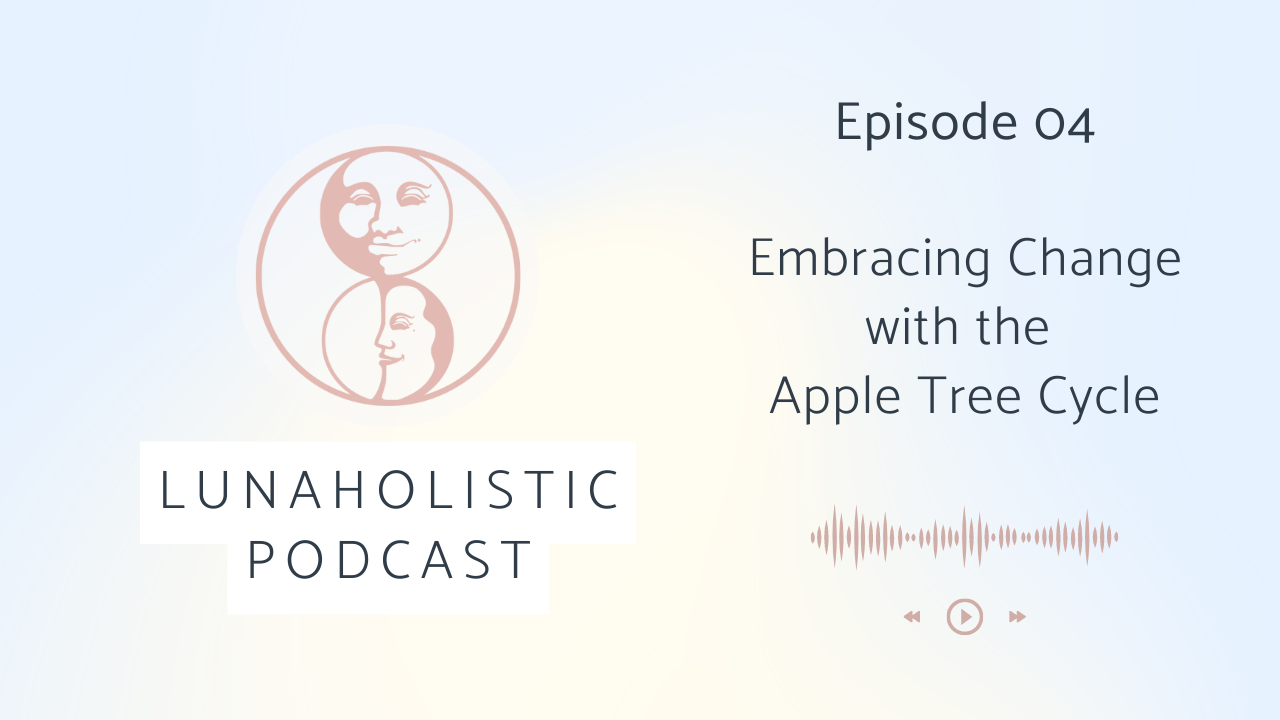
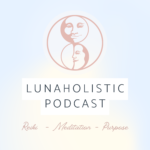
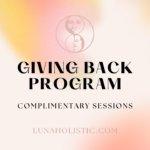
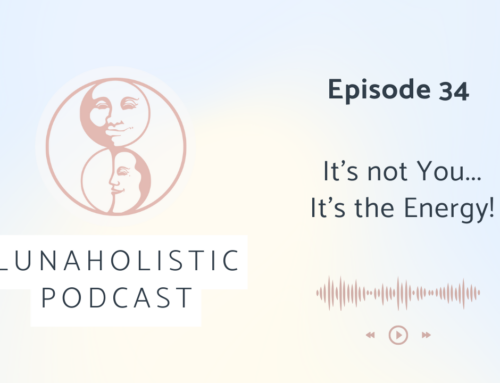
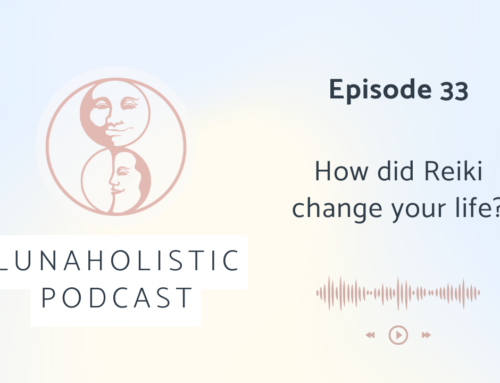
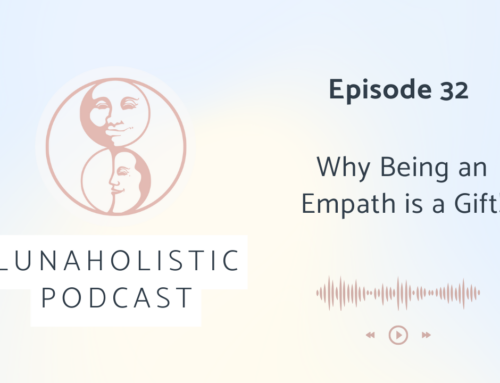
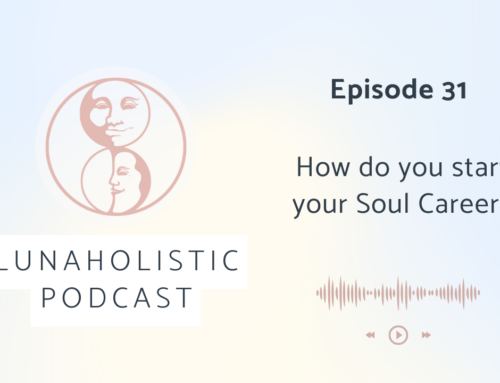
Leave A Comment